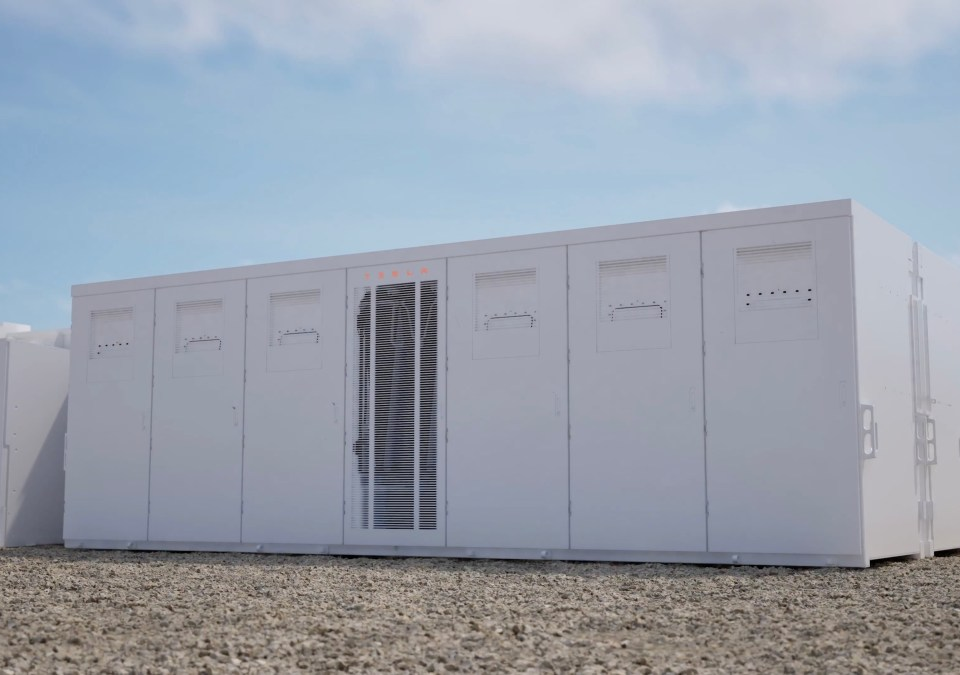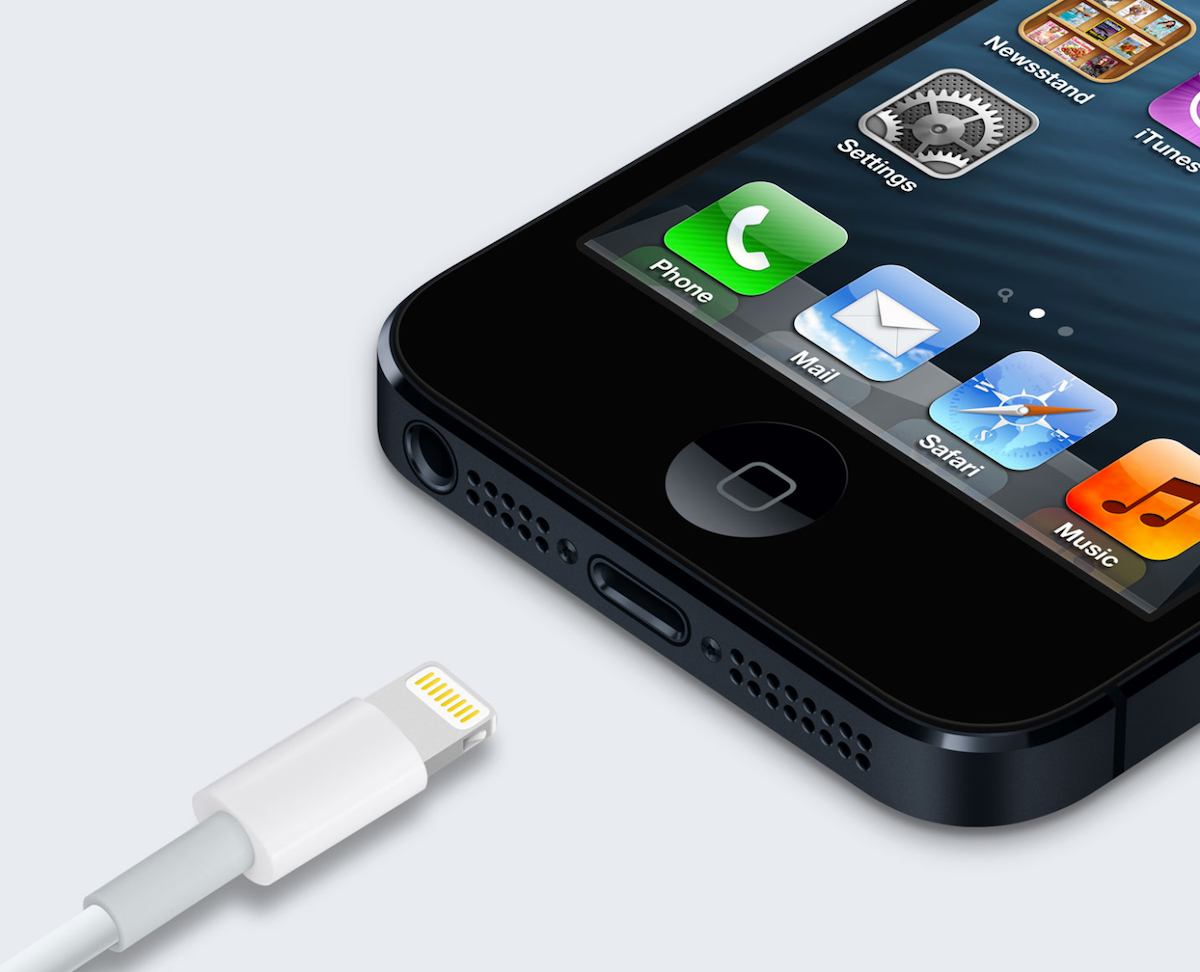
Go plug yourself, Apple — Can we please just have USB-C on the iPhone already?
September 8, 2022
As a scuba diver, I would gladly trust my life to the Apple Watch. Here’s why.
September 9, 2022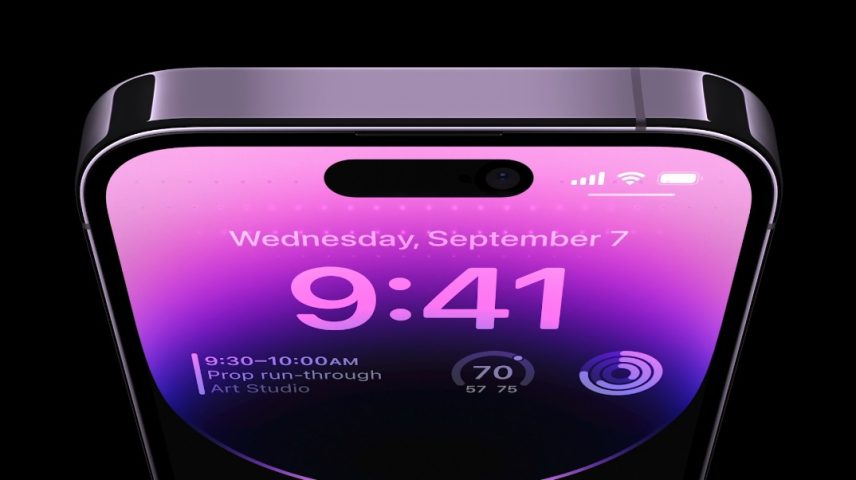
In addition to the regular iPhone 14 and iPhone 14 Plus, Apple is updating its pro lineup today. The biggest change in iPhone 14 Pro and iPhone 14 Pro Max design is at the top of the screen. The company is dropping the notch and replacing it with what the company calls the “Dynamic Island.”
The body is still made out of stainless steel and the display features a ceramic shield. There’s an all-new deep purple color in addition to black, silver and gold. They still come in two sizes — a 6.1-inch or a 6.7-inch display.
The TrueDepth camera has been updated and is now smaller. In particular, the proximity sensor is now behind the screen. That’s why Apple chose to drop the notch in favor of a pill-shaped cutout. That cutout is dynamic, as it expands to show you controls and content. It can show that your AirPods are connected or that your phone is now on mute. If you’re playing music and going back to the lock screen, you can see a tiny album art and waveform next to the cutout.
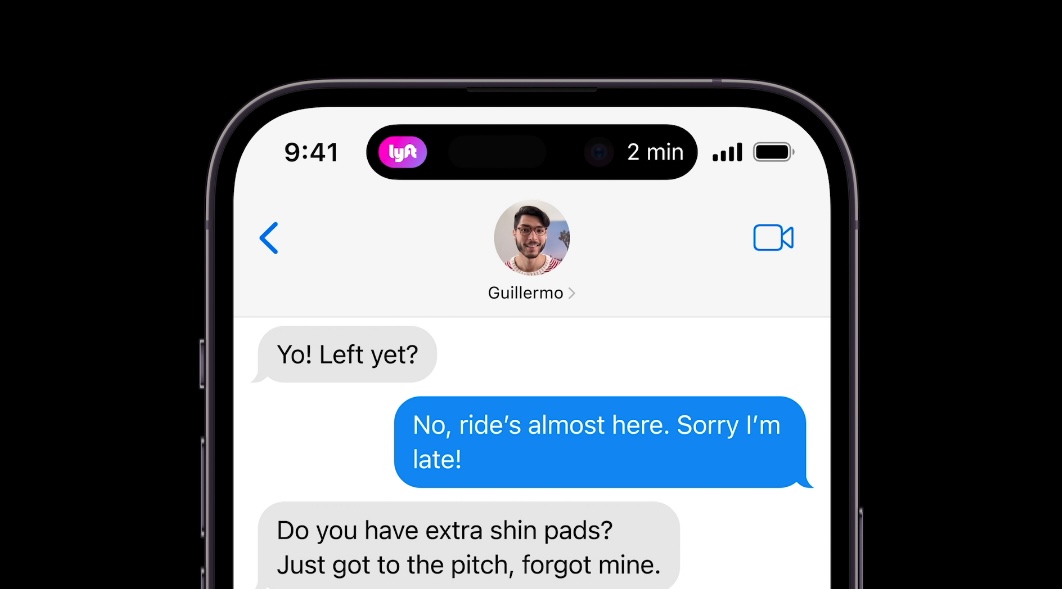
Image Credits Apple
App developers will also be able to take advantage of the Dynamic Island for live activities. For instance, if there’s a Lyft driver on their way or if you started a timer, you can see the current status next to the speaker at the top of the screen.
The display has been updated and is brighter than before. But the most important change is that it can remain always on. When you’re not using your phone, the screen will be dimmed and the refresh rate will be lowered. It can go to as low as 1 Hz (one refresh per second).
The iPhone 14 Pro uses a new system on a chip, the A16 Bionic with a six-core CPU and 16 billion transistors. There are two high-performance cores and four high-efficiency cores. Apple uses a 4 nanometer process. The A16 Bionic can compute 17 trillion operations per second. The display engine has been updated, which enables the always-on display.
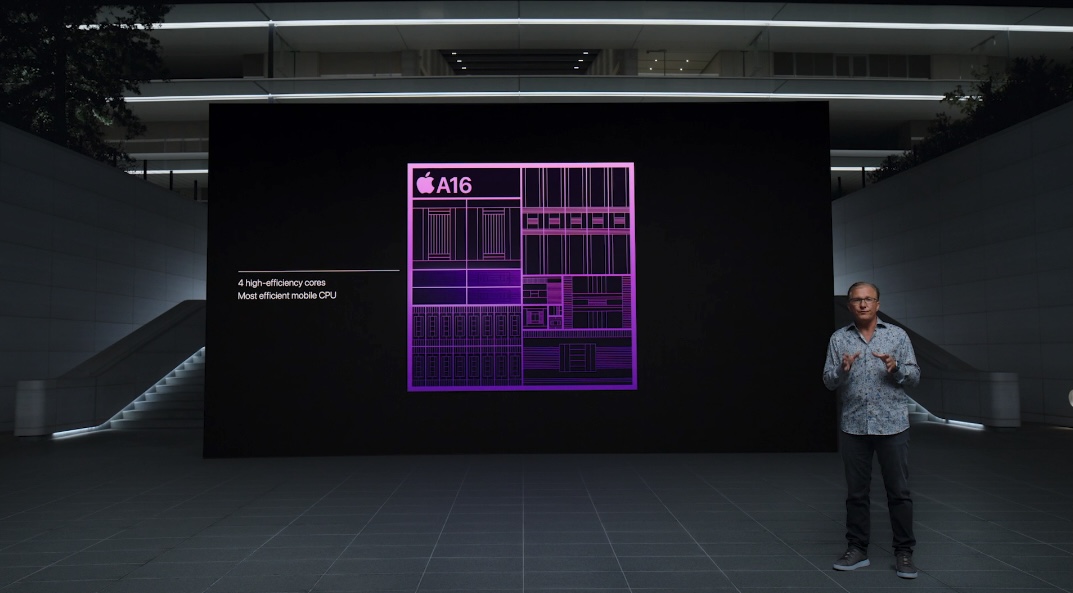
Image Credits: Apple
Let’s move to the camera system. There are still three independent sensors, but with some updates. The iPhone 14 Pro has a 48 megapixel camera with a quad-pixel sensor. This sensor is 65% larger compared to the iPhone 13 Pro. It also features a new 24 millimeter focal length.
There are now four modes when you shoot a photo — an ultrawide mode, 1x mode, 2x mode and 3x mode. But there’s a trick. The 2x mode is not optical. The company uses the 1x sensor and keeping the middle of the photo for a 2x zoom. The new ultrawide camera is 13 mm in focal length. It has an aperture of f/2.2 with a macro photography mode.
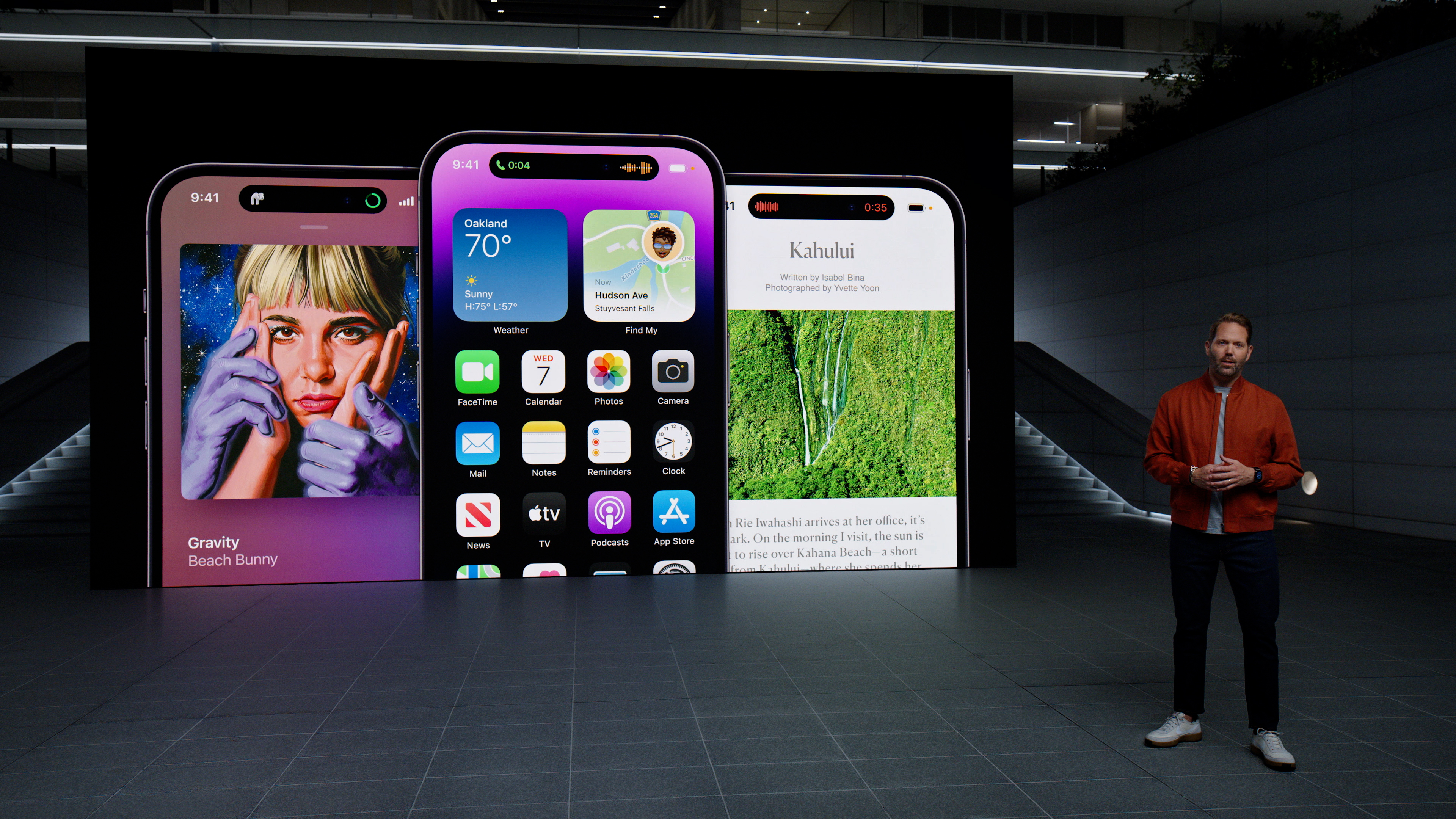
Image Credits: Apple
Of course, there are also software improvements. The new Photonic Engine means better low-light performance. When it comes to video, there’s a new action mode for improved stabilization (no gimbal required) and new cinematic modes. It now supports up to 4K resolution and 30 frames per second. You can also choose to shoot in 24 frames per second now.
Like with the regular iPhone 14, Pro models gets a new emergency SOS via satellite feature. Here’s what I wrote about the feature in my separate post about the iPhone 14 and iPhone 14 Plus:
As long as you’re outside with a clear view of the sky, you can send a message to emergency services.
On your phone, you can see where satellites are and how to point it at them. Once connected, you need to send and receive enough information to get help. Apple has created a custom, short-text compression algorithm. It can take from 15 seconds to a few minutes to send a message. You can also select standard answers from a list of preconfigured messages to speed up the conversation.
Even if you don’t need help, you can still use this satellite-powered feature to update your location in the Find My app. It can be useful if you’re on a long hike for instance.
The iPhone 14 Pro and iPhone 14 Pro Max will cost $999 and $1,099, respectively, with 128 GB of storage. These new models will be available on September 16. Preorders start on September 9.
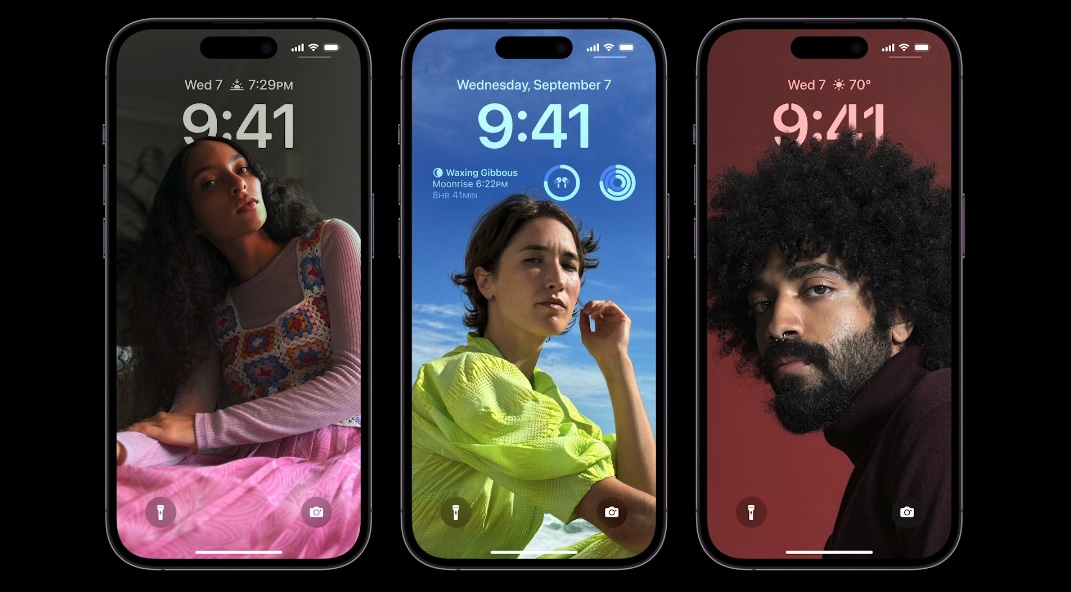
Image Credits: Apple
This is the iPhone 14 Pro by Romain Dillet originally published on TechCrunch


